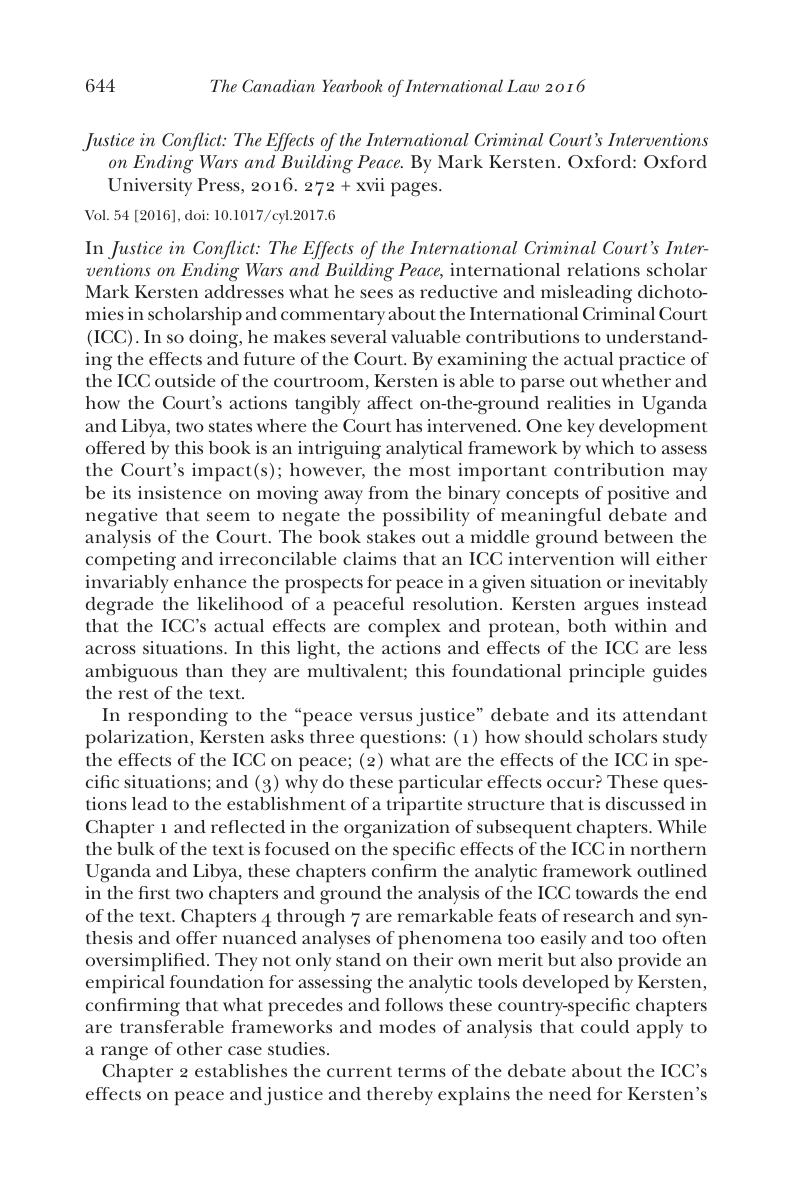No CrossRef data available.
Article contents
Justice in Conflict: The Effects of the International Criminal Court’s Interventions on Ending Wars and Building Peace. By Mark Kersten. Oxford: Oxford University Press, 2016. 272 + xvii pages.
Published online by Cambridge University Press: 02 October 2017
Abstract

- Type
- Book Reviews / Recensions de livres
- Information
- Canadian Yearbook of International Law/Annuaire canadien de droit international , Volume 54 , October 2017 , pp. 644 - 650
- Copyright
- Copyright © The Canadian Yearbook of International Law/Annuaire canadien de droit international 2017
References
1 As cited in Mark Kersten, Justice in Conflict: The Effects of the International Criminal Court’s Interventions on Ending Wars and Building Peace (Oxford: Oxford University Press, 2016) at 35.
2 See further Asad G Kiyani, “Group-Based Differentiation and Local Repression: The Custom and Curse of Selectivity” (2016) 14 J Int’l Crim Just 937.
3 Phil Clark, “Law, Politics and Pragmatism: The ICC and Case Selection in the Democratic Republic of Congo and Uganda” in Nicholas Waddell and Phil Clark, eds, Courting Conflict: Justice, Peace, and the ICC in Africa (London: Royal African Society, 2008) 37 at 44.
4 See Louise Arbour, “Progress and Challenges in International Criminal Justice” (1997) 21 Fordham Int’l LJ 531 at 537 (describing the ICTY’s slow attempts to build up its credibility over time, including by gaining the trust and support of suspicious political actors and diplomats).
5 Parvathi Menon, “Self-Referring to the International Criminal Court: A Continuation of War by Other Means” (2016) 109 AJIL Unbound 260.
6 Resolution 1970, adopted by the Security Council at its 6491st meeting on 26 February 2011, UN Doc S/RES/1970 (2011) at paras 4–7.
7 As cited in Kersten, supra note 1 at 179–80.
8 Ibid at 169ff.
9 See further Nancy A Combs, Fact-Finding without Facts: The Uncertain Evidentiary Foundations of International Criminal Convictions (Cambridge: Cambridge University Press, 2010).
10 Rome Statute of the International Criminal Court, 17 July 1998, 2187 UNTS 90, art 54(1)(a).


